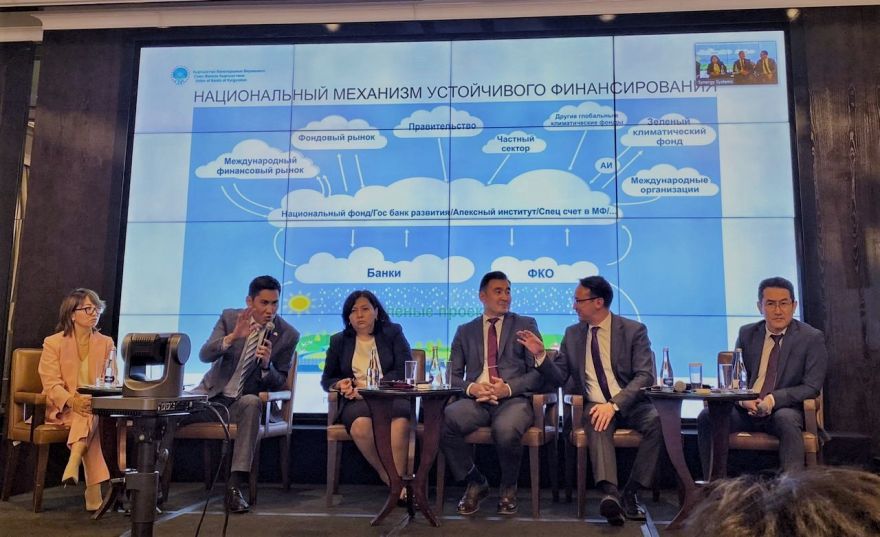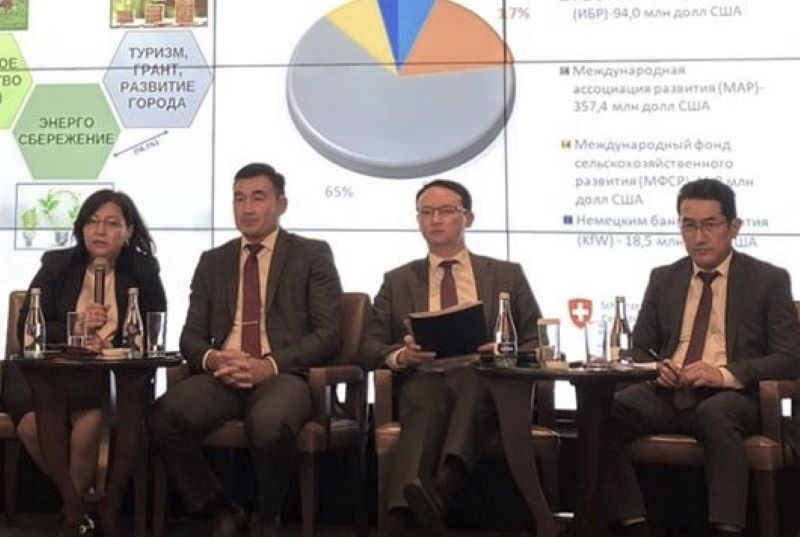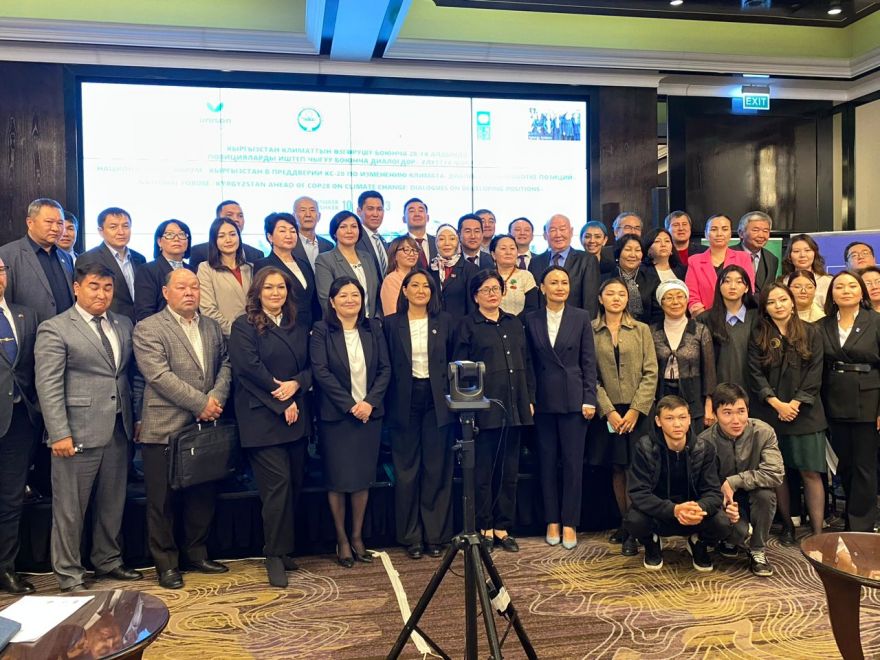News /
IBC news /
IBC voiced business recommendations for adapting to climate change and reducing emissions
“Government initiatives aimed at adapting to climate change and reducing atmospheric emissions often do not take into account the current situation,” said IBC head Askar Sydykov, voicing recommendations from the private sector ahead of COP-28 of the UN Framework Convention on Climate Change.

The national forum, held on November 10, 2023 in Bishkek, was dedicated to developing Kyrgyzstan’s positions on this topic. At a panel session on climate finance, the IBC head said that the efforts of development partners and the state to adapt to climate change and reduce emissions do not always reflect the realities of our country.
When the public hears general talk about adapting to climate change, the need to reduce emissions and protect the environment, not everyone understands how this relates to their daily lives and what needs to be done now.
“Therefore, all these initiatives, reports, conferences and meetings need to provide more accessible information to a wider range of people,” the IBC believes.
Askar Sydykov gave an example of a recent draft government resolution on Extended Producer Responsibility (EPR). According to the business, it does not seem realistic to achieve the target indicators of recycling collection and recycling percentage within the specified time frame.
Meanwhile, in the European Union this figure currently averages 39.9%, and in Germany, where they have been sorting and recycling waste for about 50 years, it is 44%.
“It is clear that the goals defined in this area for 2024, and further until 2030, are not yet achievable for Kyrgyzstan,” the IBC head concluded.
Another example is the law restricting the circulation of plastic bags in the Kyrgyz Republic. Its implementation is also not possible, in particular, this concerns the ban on the use of plastic containers, including plastic bottles. The Natural Resources Ministry is currently working to improve this document.
There are also examples in the energy and agriculture sectors when decisions made do not reflect reality. The public needs to be given more information about what technologies should be used to reduce environmental impact.
“In such situations, there is no commentary, expert support, or reaction from donor organizations or development partners. We would like to see more specificity and consideration of existing realities in all climate actions and initiatives, as well as more interaction with the business community and the public,” said the IBC head.
Meanwhile, business (at least the most active part of it) is independently taking steps to reduce its environmental impact. Currently more than 80 enterprises operate in Kyrgyzstan in the field of waste management. Of these, about 30 enterprises are engaged in waste processing, mostly created by businesses independently, without any support.
Some large companies have already begun ESG reporting.
“We, as the IBC, provide training and raise awareness about ESG standards and anti-corruption standards. We also try to make our possible contribution to reducing the impact on the environment and adapting to climate change, as well as other environmentally oriented initiatives. The IBC ESG Committee works on a permanent basis,” concluded Askar Sydykov.





























